Pre-order The Last Exile, out next spring!
It’s an odd and curious coincidence that Frank Sinatra palled around with two of the most famous victims of presidential shootings, John F Kennedy and Ronald Reagan, and also made two very good movies about presidential assassination attempts, Suddenly (1954) and The Manchurian Candidate (1962).
Sinatra also connects the three best mob works of art. His mob-assisted comeback is fictionalized in The Godfather. Goodfellas spans the years when he was on top of the culture, ending with the Sex Pistols’ cover of “My Way.” And The Sopranos debuted the year after Sinatra died, and he’s a constant presence on the show, the reigning example of the Golden Age that’s already gone.
I’m reading James Kaplan’s Frank: The Voice right now, the first of a two volume biography that covers his rise to fame, career slump, and resurrection with From Here to Eternity. Kaplan makes the argument that what Sinatra brought to pop music was sincerity. Bing Crosby was a more accomplished singer with arguably a stronger voice, but kept an ironic distance from the emotions of a song. Sinatra leaned into those emotions. He felt them and made the audience feel them.
Sinatra is a better actor than his musical and crony comedy-heavy filmography suggests. While crooners like Crosby and Dean Martin made some very great and fun movies, Sinatra often chose roles that simmered in ugliness and discomfort. From Here to Eternity is a terrific film and he’s great as Maggio, a runty soldier hounded and abused by a sadistic sergeant. His Oscar-nominated performance as a poker dealer with a heroin habit in The Man with the Golden Arm is also worthwhile. These are ambitious, take-me-seriously roles, about as far from White Christmas or Rio Bravo as one can get.
In his later years Sinatra made a couple of interesting cop-on-the-verge-of-retirement films, The Detective (famously adapted from the same series of novels as Die Hard) and The First Deadly Sin, as well as two PI films, Tony Rome and Lady in Cement.
Suddenly
I think of Suddenly as a spin on Bogart’s The Desperate Hours, but Suddenly actually came out the previous year. Sinatra plays Joey Baron, a former soldier turned hit man who takes a single mother and her son hostage in their own house. The president is making an unscheduled train stop in town, and the house offers the perfect vantage to shoot him. When the local police chief, played by Sterling Hayden, is captured too, the hostages have to outwit Baron and his goons before time runs out.
Hayden as an injured hostage plays against his strengths as an actor, but seeing him cowed by someone much smaller than him adds an aura of danger to Baron’s crew. If they can take out the star of The Killing and the Asphalt Jungle, they must be dangerous.
Directed by Lewis Allen and written by Richard Sale, Suddenly is a solid thriller anchored by a very good performance from Sinatra as a seemingly cold-blooded assassin slowly revealing himself as an insecure psychotic.
The Manchurian Candidate
Richard Condon’s The Manchurian Candidate allegedly contains plagiarized passages from Robert Graves’s I Claudius. Suddenly might also be a source of theft/inspiration, since, as Wikipedia points out, both feature “a mentally troubled former war hero who, at the climax of the story, uses a rifle with a scope to shoot at a politician.”
But Manchurian is about Major Bennett Marco (Sinatra), a returning Korean War vet whose platoon has been captured by the Communists and brainwashed so that they believe they were all rescued by Raymond Shaw (Lawrence Harvey). Why? So that Shaw, the stepson of a Joe McCarthy-esque senator named Iselin, can use that war hero status to help get his stepdad added to the presidential ticket. A spoken command will then compel Shaw to shoot the presidential nominee and ensure Iselin’s spot at the top.
The idea that people would worry the Russians and Chinese interfering in a US presidential election is now one of those “we used to worry about this, then it happened and no one cared” events, like the crooked land deals of Chinatown and the pre-smartphone surveillance state.
While the brainwashing angle is a bit zany, the film’s real focus is on the people caught up in the plot. Marco and a mysterious woman played by Janet Leigh try to unravel the conspiracy, while Shaw is torn between his domineering mother (Angela Lansbury) and the love of his life, the daughter of a liberal senator.
It’s a film I need to rewatch soon. Certain scenes seem to spin against their intent. Sinatra and Leigh’s meetup on a train is full of classic movie star banter, yet Sinatra hardly looks at her. Is she a spy? Is she real? Is any of this even happening?
At the beginning we see Marko’s squad on a stage, where a Communist handler explains to the crowd that he can cause the soldiers to kill, and not only will they obey, they won’t remember a thing.
The film cuts between what’s ‘really’ happening and what the soldiers ‘think’ is happening—they believe they’re attending a gardening lecture and look appropriately bored. This is the last moment where reality and illusion are clearly differentiated.
The horror of brainwashing is that there’s no clear boundary—by trying to foil his enemies’ plans, Marko could actually be aiding them. The film’s genius is that it infects the viewer with these same doubts.
Frank Sinatra was far from the kindest, bravest, warmest, most wonderful human being, yet after JFK’s assassination, Sinatra was rumored to have pulled both Suddenly and Manchurian Candidate. I’m glad the films survived. In both, Sinatra brings intensity to his roles, as Baron’s plan to kill the president falls apart, and Marko tries to thwart Shaw’s in the nick of time.

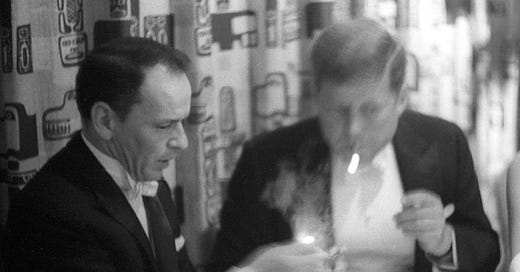



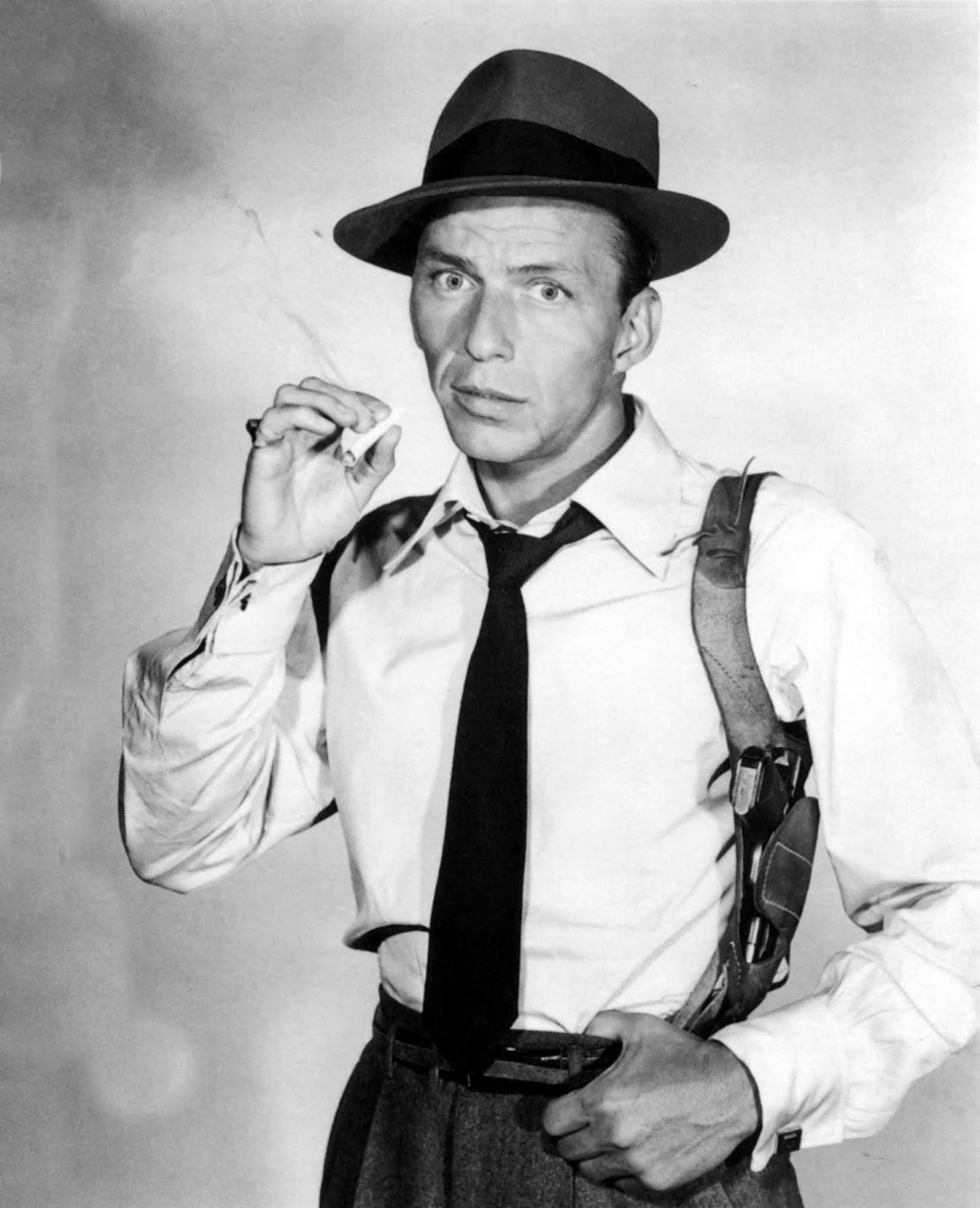
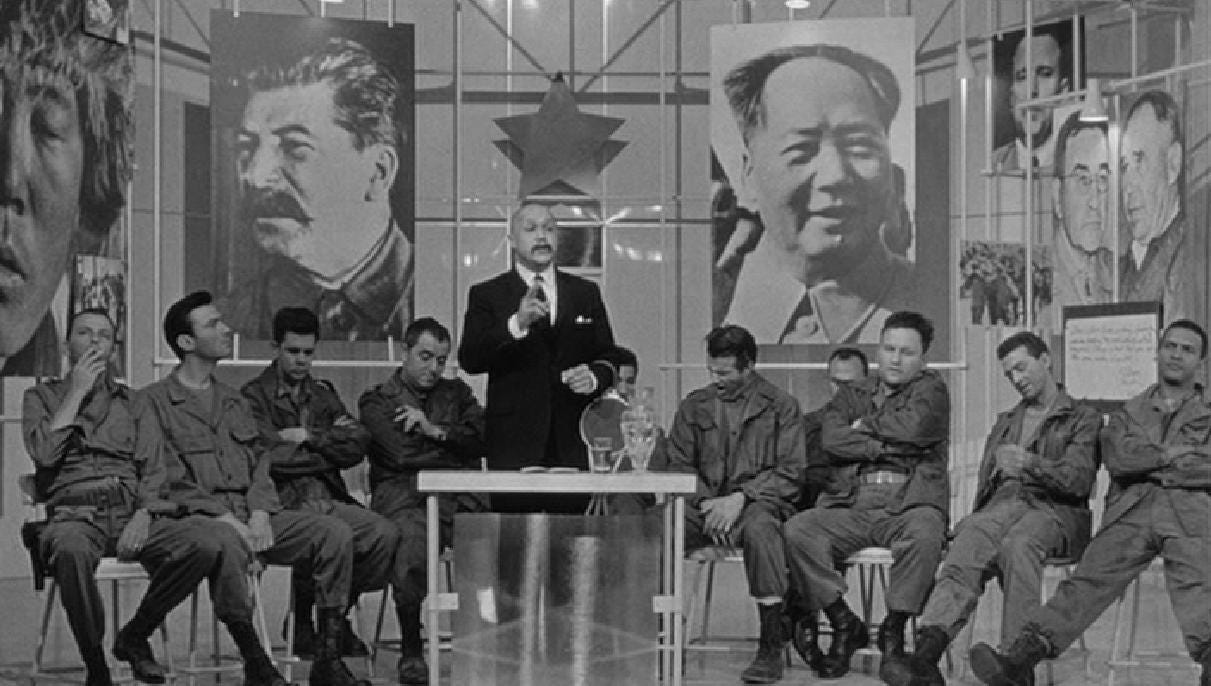
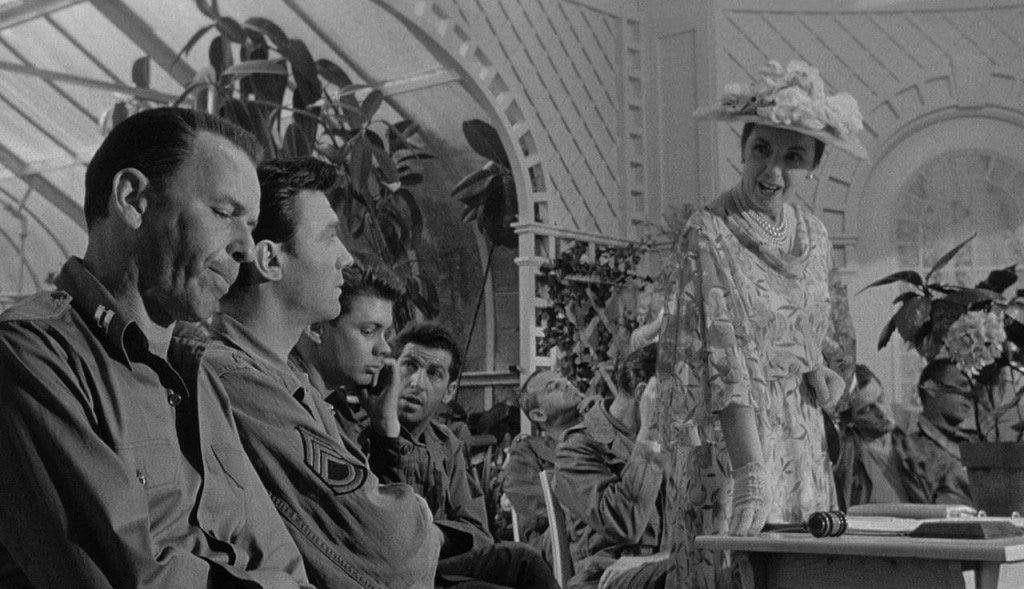
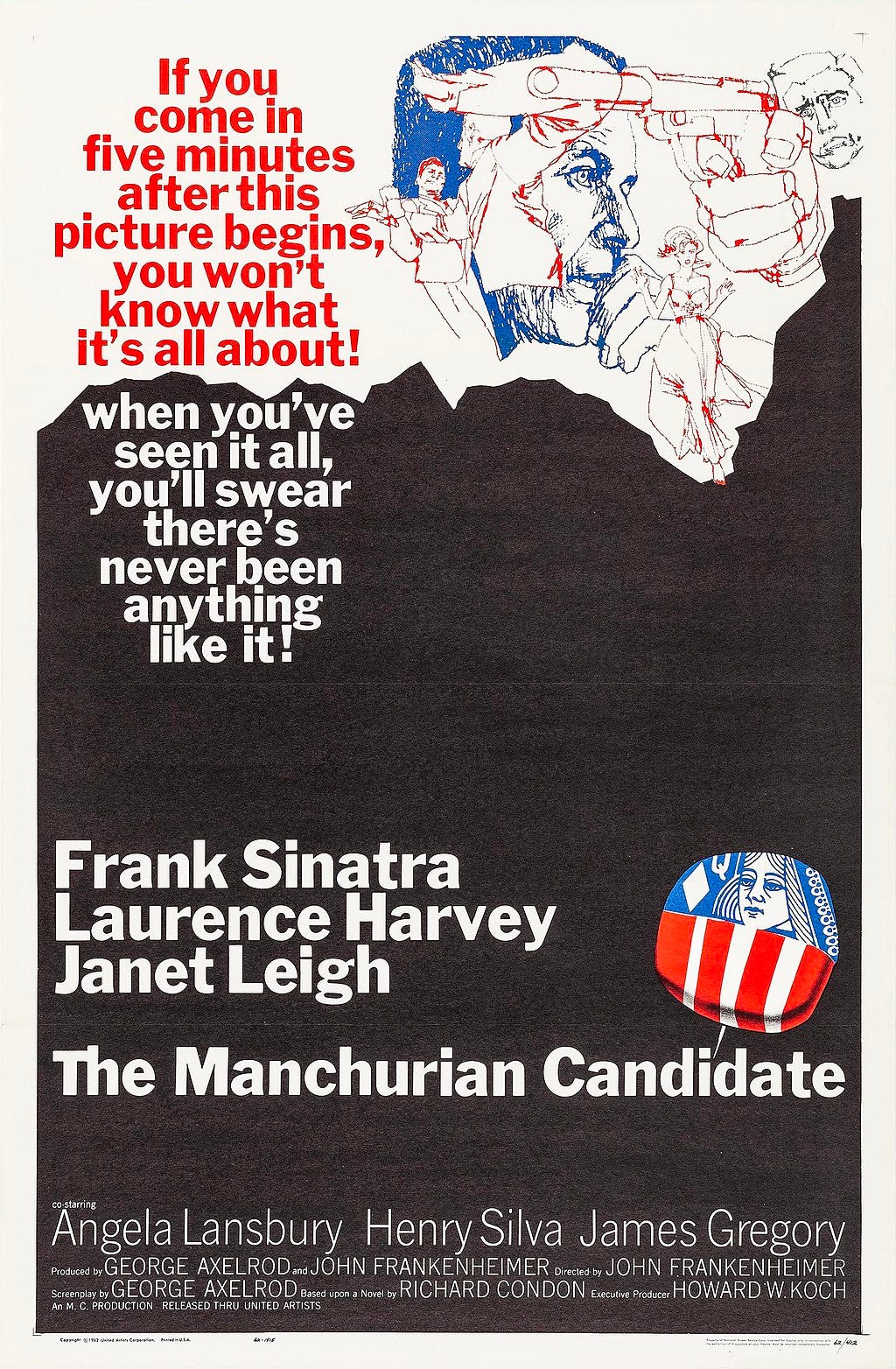
He made some really good movies... I listen to him sometimes, the early stuff, where he sings like a scorched cat. Ever noticed he's not afraid of going off key? Smooth, he wasn't, that came later, but yeah, goosebumps!